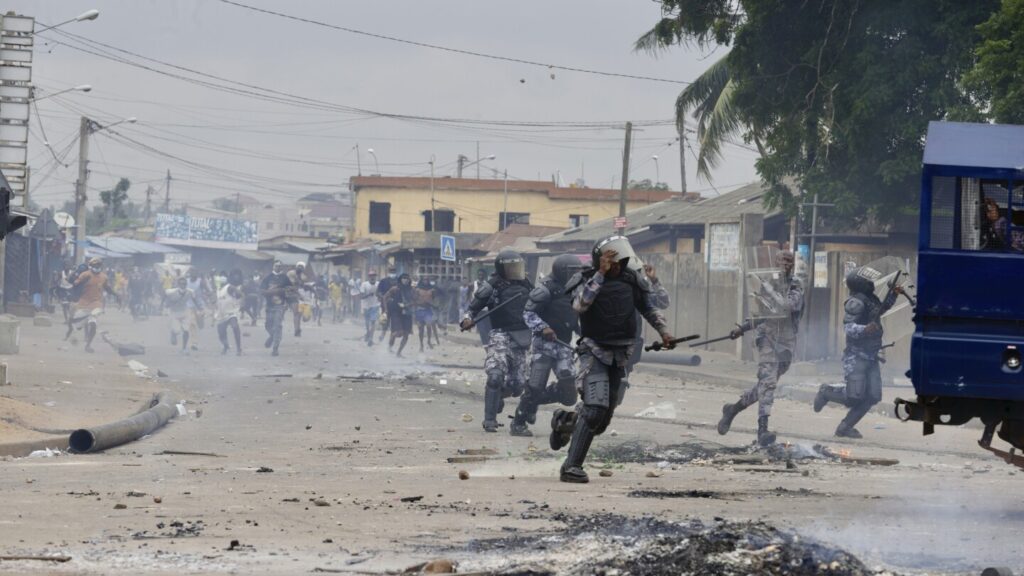DAKAR, Senegal (AP) — At least three people died during protests in Togo’s capital Lomé on June 26, 27 and 28, Amnesty International said Tuesday, as leader Faure Gnassingbé faces increasing pressure from critics over recent changes in the constitution that could effectively keep him in power indefinitely.
Three bodies, including those of two teenagers, were found in a lagoon in Lome’s Be neighborhood, where violent clashes broke out between protesters and security forces last week, Aimé Adi, director of Amnesty International’s office in Togo, told The Associated Press.
Adi said the rights group spoke to the family of one of the victims, who reported that their 16-year-old son had gone missing after leaving the house to head to Be during a lull in the unrest on Thursday. His body was found in a lagoon the next day.
“They found their son dead, bearing signs of blood and beating,” he said, adding that the circumstances of the three deaths are still unclear.
On Sunday, a coalition of 12 Togolese civil society and human rights groups accused security forces of making arbitrary arrests, assaulting civilians with batons and ropes, and looting or vandalizing private property.
Alongside the three deaths confirmed by Amnesty International, the civil society groups said two bodies were also found in a lake in Lome’s Akodessewa district on Friday and two more in a lagoon in Nyekonakpoe, also in Lome, on Saturday. In total, seven people died during the protest, the groups said.
“So far, the justice system has made no arrests and has not requested an autopsy. These acts, marked by unspeakable cruelty, amount to a state crime. The perpetrators struck without restraint and killed without distinction,” the statement read.
Togo’s government acknowledged that bodies were recovered from the Be lagoon and the Akodessewa lake in a statement Sunday but said the victims died from drowning.
Civil society groups and social media influencers had called for protests on June 26, 27, and 28, after the government’s clampdown on protests early this month.
Faure Gnassingbé, who has ruled since 2005 after the death of his father and predecessor as president, Gnassingbé Eyadéma, was sworn in in May as president of the Council of Ministers. The powerful role has no official term limits and he is eligible to be re-elected by Parliament indefinitely.
Gnassingbe’s former job as national president, a position that is now mostly ceremonial, was given to politician Jean-Lucien Kwassi Savi de Tové after the announcement.
Opposition politicians have denounced the move as a “constitutional coup.”
Demonstrations are rare in Togo because they have been banned since 2022 following a deadly attack at Lome’s main market.
But the latest change in government structure has been widely criticized in a region threatened by rampant coups and other threats to democracy.

